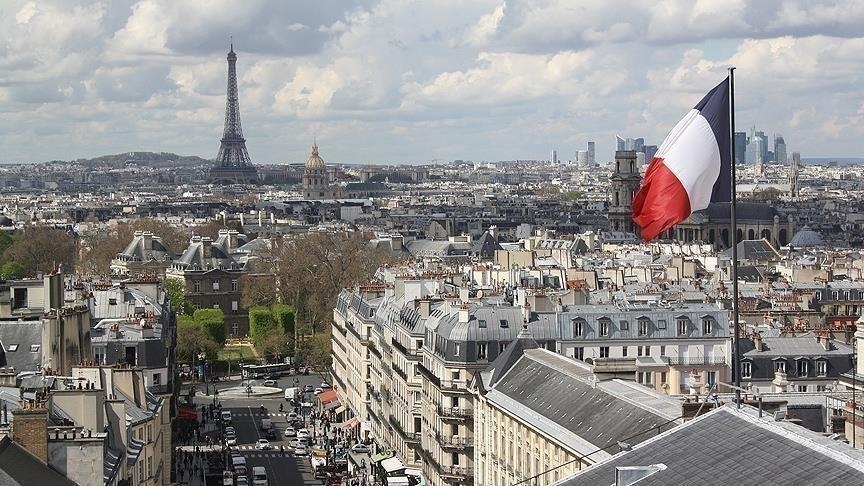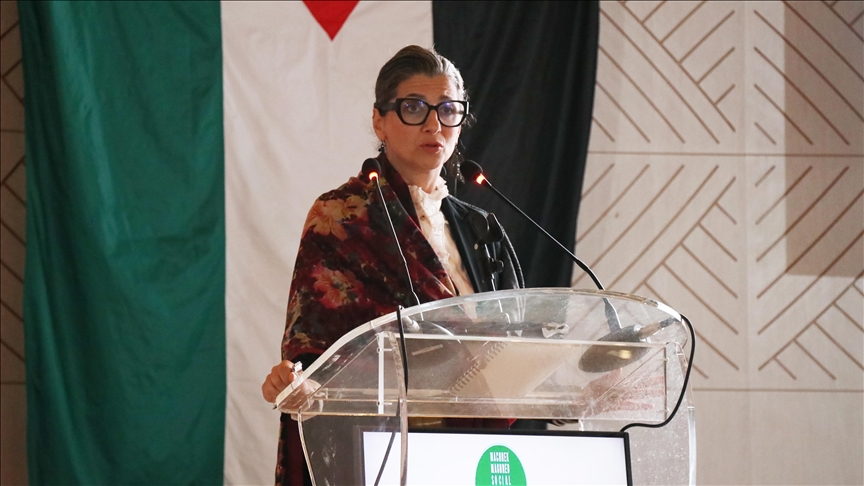Soaring costs, shrinking government grants plunge French students into crisis
PARIS
The cost of living has become unbearable for many university students in France, as inflation continues to erode their purchasing power, which was already not very strong to begin with.
A viral video posted Tuesday by Maelle, a 20-year-old political science student, bears witness to this tragic situation.
It shows Maelle in tears, crying in distress over her daily life. She denounced in particular the paltry amount of her grant from France’s Regional Center for University and School Works.
“Every year for the past four years, they have reduced my grant,” she said, explaining that she gets a monthly grant of less than $100 to meet her needs while she needs $400 a month just to cover her rent. She sees it as an impossible task.
She also explained that her parents, who live in Mayotte – a small island off East Africa that technically is a part of France – “don’t have the means” to pay for her studies and that as a result, she has to work 20 hours a week to try to support herself.
Maelle explained that her father is unemployed and that if her mother got a raise, it would all go just to cope with the price of food, which is very high in France’s overseas territories.
On Mayotte, cheese costs €10 ($9.78), she said, adding that with a total monthly income of around $2,000 for two people, her parents have only the “bare minimum.”
“My studies are taking a hit, but I’m working and I’m not saving anything,” she added, before asking how many hours she will have to work and how hard to pay for her life.
The body that gives the grants responded by saying that it “can’t do anything,” she said.
She added that after asking the body for emergency support, she was refused, even after she worked the entire summer to make more money.
Maelle’s poignant video has been viewed over 4 million times. A crowdfunding campaign was launched, and more than $13,000 was raised, leading her to share the money raised with student support groups.
Hundreds of thousands of students in distress
Maelle’s life of distress and constant worrying is far from uncommon, and indeed is felt by hundreds of thousands of French university students.
According to an Oct. 3 study by the student solidarity group COP1, over half of students do not get enough to eat.
It reported that more than 1.5 million students face malnutrition on a daily basis.
In its 2022 academic year report, the National Union of Students of France (UNEF) noted that the cost of living this year has risen an average of 6.47% for students, while the annual inflation rate was 6.1%, according to the latest figures from the National Institute of Statistics and Economic Studies (INSEE).
“This increase represents more than $417 per year, or more than $34 per month in the budgets of students,” reported the association.
It added that students already faced a precarious situation due to the pandemic.
In the 2022 edition of the study, entitled “Student at risk: Two years later, nothing has changed,” the French association Linkee, which fights food waste, reported that two out of three university students, or 2 million students, face a situation of extreme risk. After paying all their bills such as rent and utilities, internet, telephone, and transport, they have less than $50 left to meet their needs, including food.
“In October 2020, the queues of students waiting for food aid shocked the public in France and beyond. They revealed the violent precariousness of young people following the COVID-19 crisis, their isolation, their miserable living conditions, and their disarray in a country that prides itself on preparing for the future,” the association said.
It added: “Two years later, the observation we made is still valid.”
Rising rents, increasingly expensive food, insufficient grants, and delays in their payment have exacerbated the desperation of students, who have no course but to seek outside aid.
Inadequate government efforts
In its 2022 report, the students’ union UNEF denounced the inadequacy of government actions to meet the immediate needs of these young people in search of a better future.
“For the past five years, the public policies of President Emmanuel Macron’s government towards students have fallen far short of expectations. Students have received one false promise after another and half-hearted measures, so their situation is not improving,” the report added.
Blasting the “blatant insufficiency” of government help for students, the group pointed out that the 3.5% increase in scholarships set by the government last summer is “well below the inflation rate.” One-off grants of €150 illustrate the gap between the government’s action and the real needs of students, which remain much higher.
“In recent years, the government has not stopped boasting about its actions in favor of students. However, it has to be said that it remains shy of investing in direct aid to students,” UNEF said.
“Even though this is the most effective way to fight students being on the brink, the government of Macron’s first five-year term is the one that has invested the least over the last 15 years, with 21.13% less investment in direct aid than under then-President Nicolas Sarkozy in 2007-2012 and 55.86% less than under then-President Francois Hollande in 2012- 2017.
“It is also the only government to make students lose money to the tune of €35.81 per year, per student,” the group added, noting that the cost of student life shot up 16.8% in real terms during Macron’s first five-year term.
In a new video posted on TikTok on Wednesday, Maelle said that after watching the video, she got an email from a top government official, which gave her hope that the government will give students decent scholarships that will allow them to support themselves without having to resort to endless hours of work or relying on donors. Only time will tell.
*Translated by Aurore Bonny
Anadolu Agency website contains only a portion of the news stories offered to subscribers in the AA News Broadcasting System (HAS), and in summarized form. Please contact us for subscription options.




